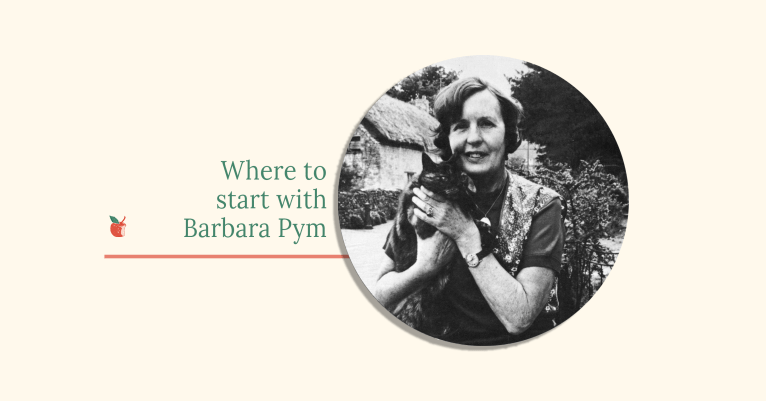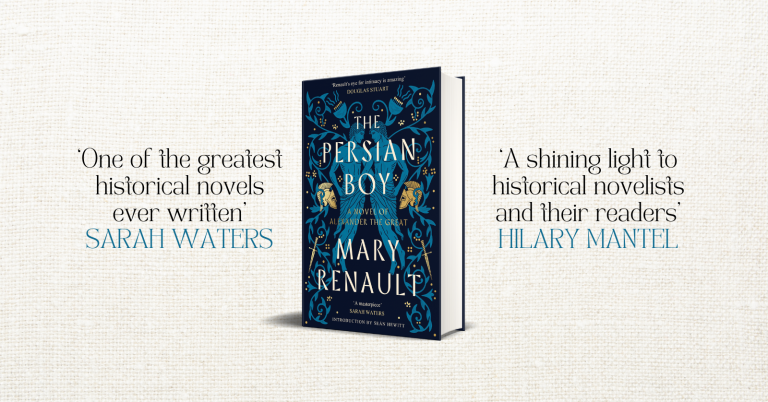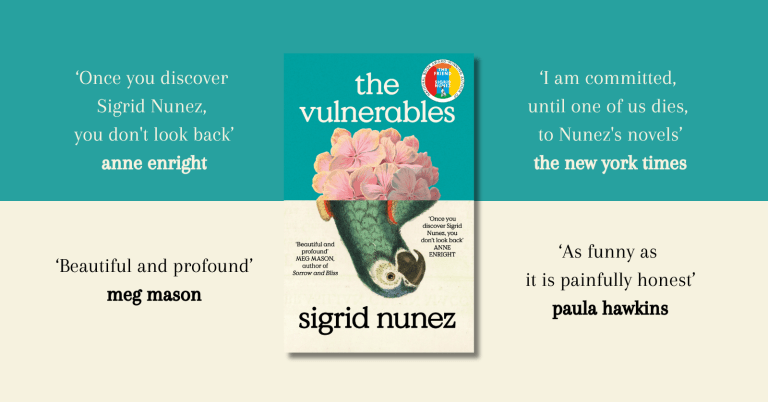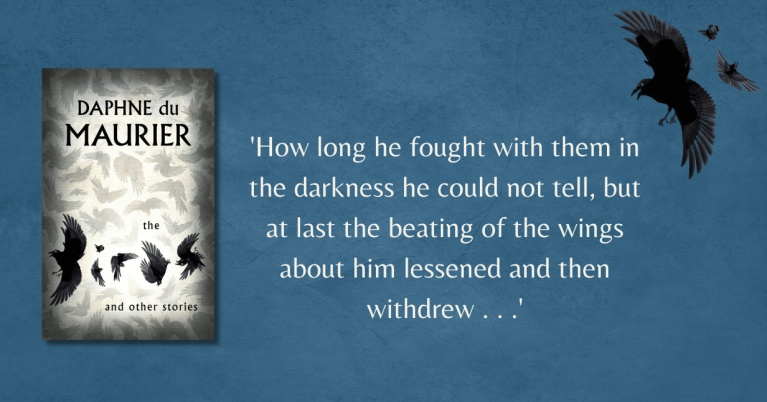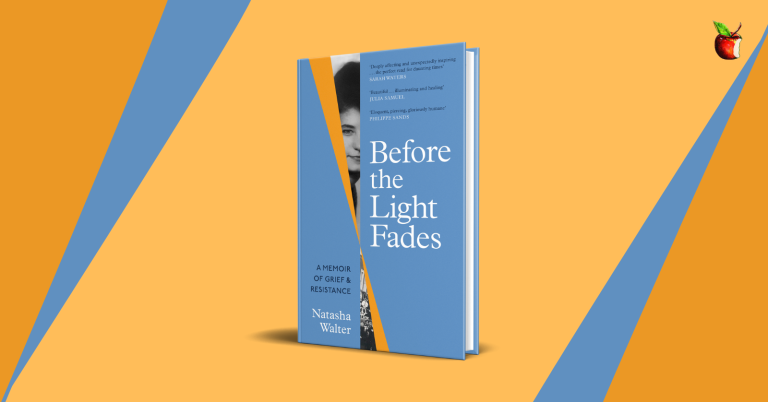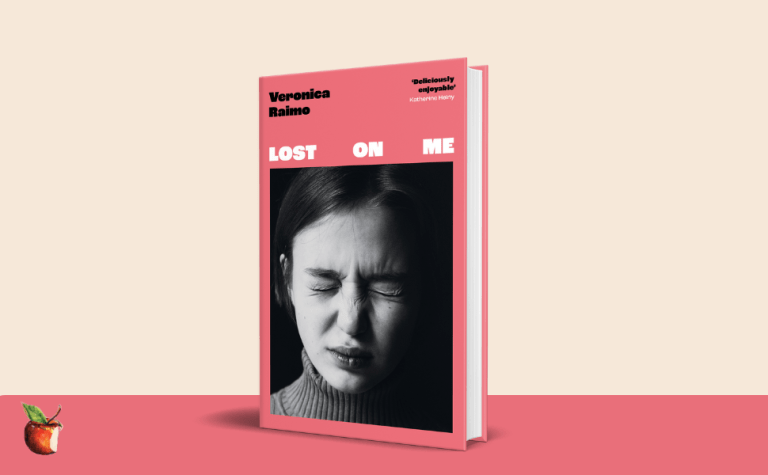The Magic Toyshop by Angela Carter | #VMC40
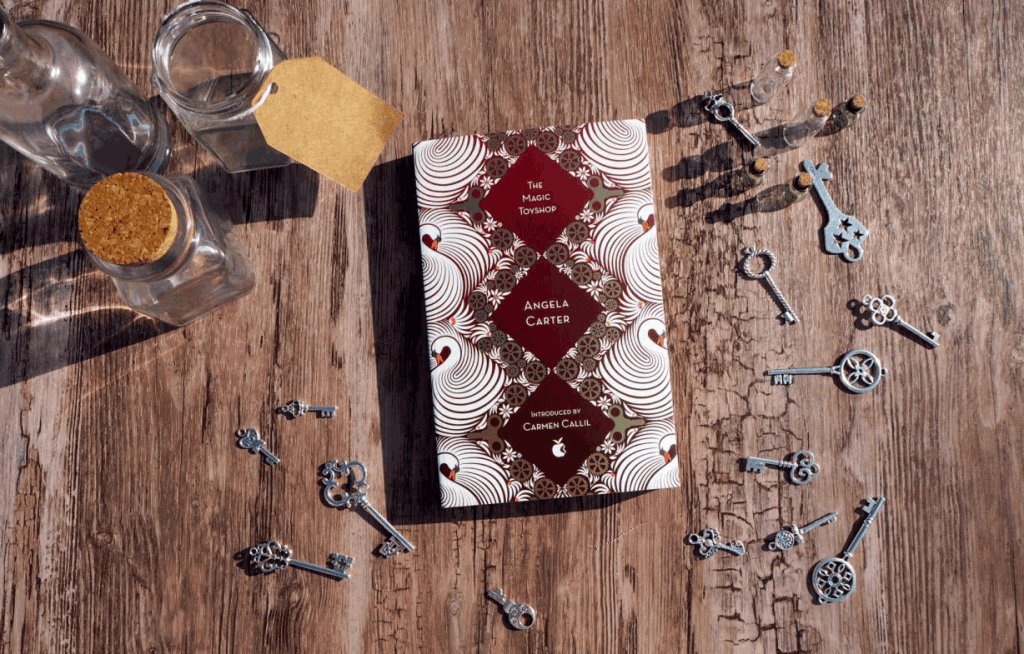
As part of our Virago Modern Classics 40th anniversary celebrations, the Virago team have each chosen a favourite title from the #VMC40 series. Each month, we will introduce the book and share with you why we love it.
This July our #VMC40 book of the month is The Magic Toyshop by Angela Carter.
The Magic Toyshop
By Angela Carter
“‘You overacted,’ he said to Melanie and cuffed her with the back of his hand. ‘You were melodramatic. Puppets don’t overact. You spoiled the poetry’”
First published in 1967, The Magic Toyshop by Angela Carter is an intriguing document from the end of that much-lauded decade. The sense of transition that the 1960s encapsulated, finds itself in this book in the grubby junkyard London, which seems to the reader today closer to crumbling Victoriana of 1860s England to the fast-approaching futuristic 1970s. All tenets of life were going through profound radical reconsideration, realignment and change – from cities and the spaces we live in, to the issues of gender, race and sexuality, and The Magic Toyshop is a testament to this emergent struggle and conflict in everyday life.
As we follow Melanie’s emergence as a young woman – the opening line “The summer she was fifteen, Melanie discovered she was made of flesh and blood” – we get the sense of the outline of an orthodox Victorian novel, but one we soon learn turned radically on its head. Melanie is brought up in a well-to-do (but fatefully blinkered) family and then in the turn of a page, is thrown into a working-class home and way of life that is unfamiliar and alien to her. She is forced to take on the mantel as carer for her siblings, shop worker and the attention of a domineering Uncle and two young men she does not know the motivations of. Whilst home had once been the safe place of firm delineations of what a girl and what a child should be, this new house is full of contradictions and the blurring of traditional roles. In a toyshop, the kaleidoscopic characters and masks that one is able adorn, can be a delirious place to be.
In this sense, The Magic Toyshop still feels extremely relevant, and whilst the book is punctuated with references to fairy-tales and myths, they are twisted by Carter into shapes that feel uncannily modern and relevant. Above all else, The Magic Toyshop forces us to question whether this seemingly cyclical repeat of oppression and domination has ever and can ever be overthrown – and which masks and guises, can we take on and repurpose to create a narrative that can change the present? It’s this dynamic that makes The Magic Toyshop such a powerful novel and one that I will keep coming back to, safe in the knowledge that it will continue to challenge me and say something new, every single time.
Jonny Keyworth, Senior Marketing Executive
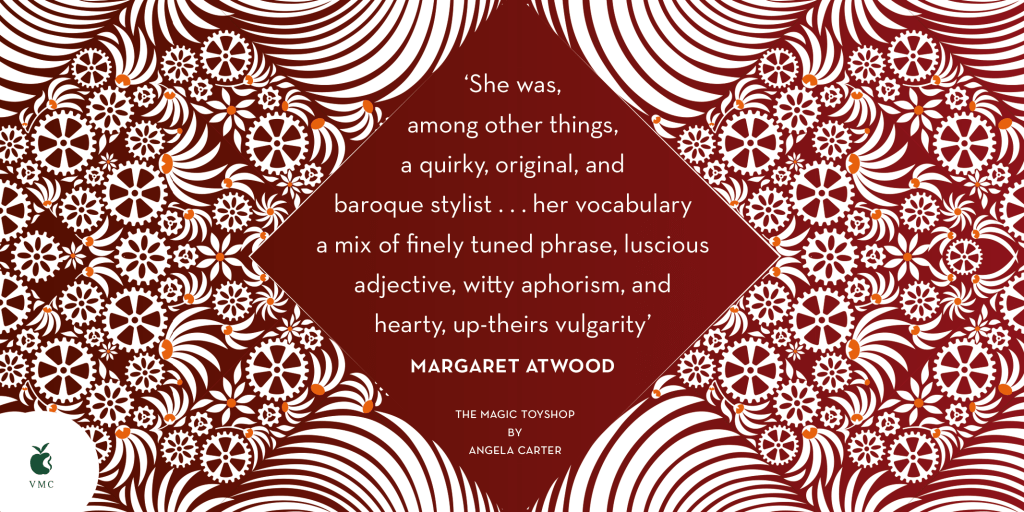
“[A]nd look at her face in the mirror she had not broken. She had not seen her own refection since. She was seized with panic, remembering that she had not seen her own face for so long”
Reading Group Questions:
- The novel opens with the line ‘”The summer she was fifteen, Melanie discovered she was made of flesh and blood”. How did you feel Melanie’s coming of age was represented in the book?
- Do you think that Melanie’s memory of her idyllic rural childhood and home is idealised? And do you think Melanie changes in her class perspective as she becomes a citizen of the city?
- The severed hand appears in the book as a symbol of arrested development: what do you think the role of puppets and toys are in regards to Melanie’s state of mind?
- Uncle Philip uses the shop and his craft to enslave Margaret and Melanie – by the end of the boo, do you think Melanie seizes her freedom or is she merely exchanging one form of domination with another?
“Finn inserted his tongue between her lops, searching tentatively for her own tongue inside her mouth. The moment consumed her. She choked and struggled, beating her fists against him, convulsed with horror at this sensual and intimate connection, this rude encroachment on her physical privacy, this humiliation”
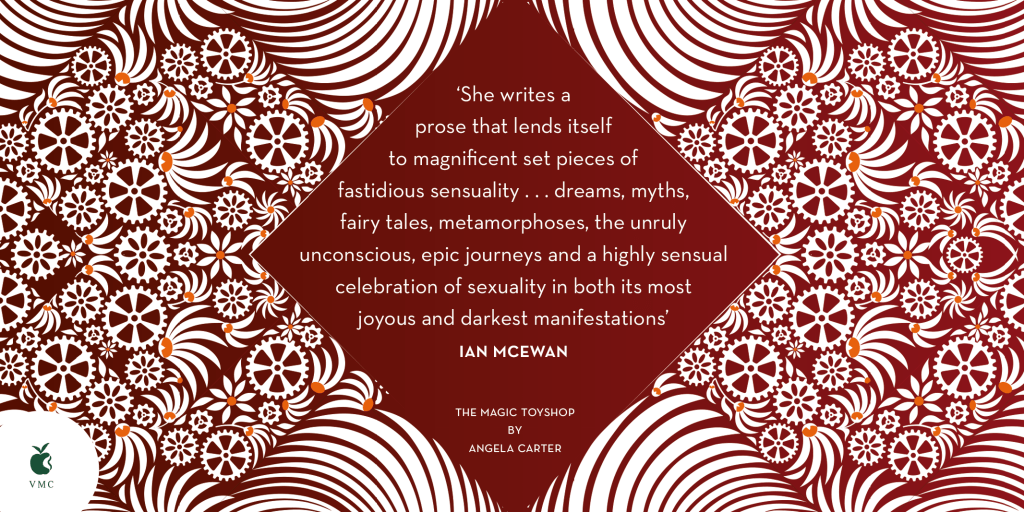
Further reading/listening/watching:
The New Yorker | Angela Carter’s Feminist Mythology: A new biography shows how the British author made fairy tales psychological and sexy: https://www.newyorker.com/magazine/2017/03/13/angela-carters-feminist-mythology
BBC Radio 3 | Landmark: Angela Carter: http://www.bbc.co.uk/programmes/b06pssk1
Angela Carter’s Biography: https://www.amazon.co.uk/Invention-Angela-Carter-Biography/dp/0099575728/ref=sr_1_8?ie=UTF8&qid=1523352264&sr=8-8&keywords=angela+carter
The Magic Toyshop Film: https://www.imdb.com/title/tt0097806/
“‘Everything is all right,’ said Finn. ‘The play is over’”


